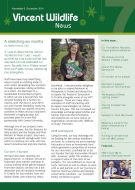
Staff have been busy identifying ways to build on existing areas of work whilst developing new contacts through awareness-raising activities. As a result, the MISE project has secured funding for a further six months, our pine marten feasibility study has moved forward, our species recovery activities in Wales and our long-term Bechstein’s ringing project has provided data for a new PhD partnership with Exeter University.
Download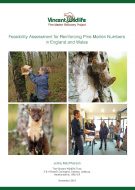
Successful translocations of pine martens to recently and historically occupied suitable habitat could be a major proactive step towards improving the conservation status and genetic diversity of the pine marten in England and Wales. This report provides an initial assessment of the feasibility of undertaking translocations to reinforce existing populations that have failed to recover naturally.
Download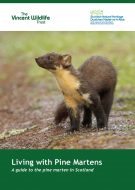
A guide to the pine marten in Scotland, including information on predation of poultry and game birds, denning in buildings and steps to take to exclude a non-breeding pine marten from a house. It also provides advice on how to prevent pine marten’s taking up residence in your property. This leaflet was produced in collaboration with and funded by Scottish Natural Heritage.
Download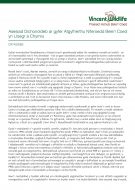
Gallai trawsleoliad llwyddiannus o felaod coed i gynefinoedd addas lle roeddent unwaith yn bodoli – un ai’n hanesyddol neu’n fwy diweddar – fod yn gam sylweddol ymlaen o ran gwella statws cadwraethol ac amrywiaeth genetegol y rhywogaeth hon yn Lloegr a Chymru. Mae’r adroddiad hwn yn cynnig asesiad cychwynnol o ddichonoldeb ymgymryd â gwaith trawsleoli i atgyfnerthu poblogaethau sydd eisoes yn bodoli ac sydd wedi methu adfer yn naturiol.
Download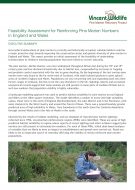
Successful translocations of pine marten to recently and historically occupied suitable habitat could be a major proactive step towards improving the conservation status and genetic diversity of pine marten in England and Wales. The full report provides an initial assessment of the feasibility of undertaking translocations to reinforce existing populations that have failed to recover naturally.
Download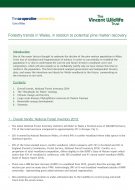
One of the major factors thought to underpin the decline of the pine marten population in Wales is the loss of woodland and fragmentation of habitat. In order to successfully re-establish the population it is vital to understand the current and future trends in woodland cover and composition.
Download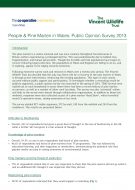
Following extensive survey work and research in Wales over a twenty year period, The Vincent Wildlife Trust has decided that the only way there will be a recovery of the pine marten in Wales is through active intervention; reinforcing the existing population. This type of work cannot succeed without public support and participation.
Download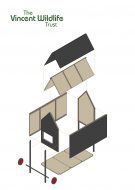
We have recently developed and tested a design for a night roost for lesser horseshoe bats. More information and the design of the night roost is detailed in this document.
Download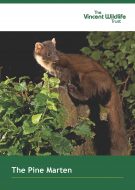
An introduction to the pine marten. Including an overview of its history and current status in Britain, ecology and behaviour, pine martens and the law, and The Vincent Wildlife Trust’s work with the species.
Download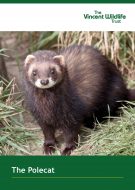
The polecat is a native British mammal and is widespread in western Europe. The polecat belongs to the weasel family, the Mustelidae, comprising over 60 species of badgers, otters, skunks, martens, mink, ferrets, stoats and weasels. Like many in this family, the polecat has a long body with short legs. It is generally dark in colour, especially on its chest, legs and tail that are covered in near-black fur.
Download